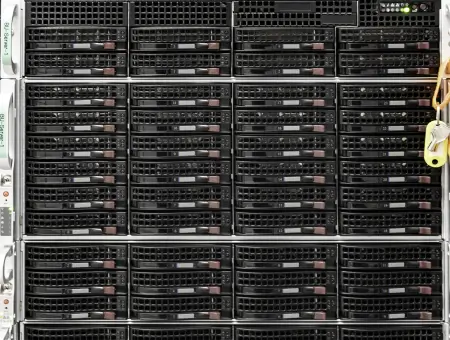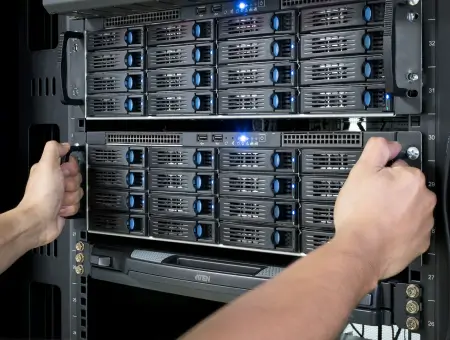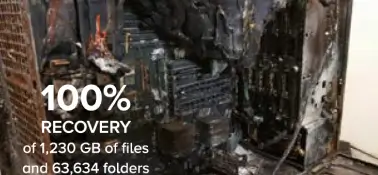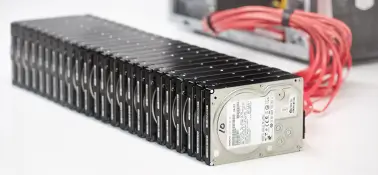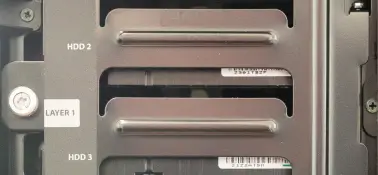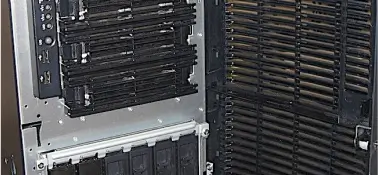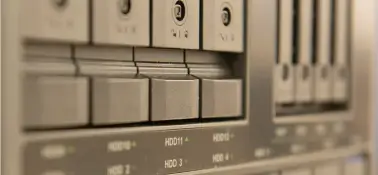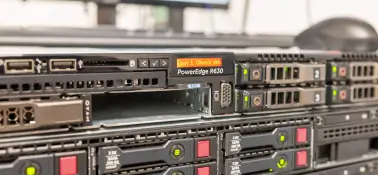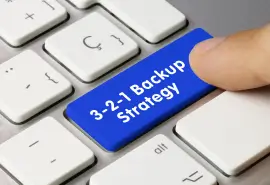RAID Data Recovery for Every Level and Failure Type
We are the RAID data recovery specialists with advanced tools and techniques and an industry-leading 96% success rate. Our certified data recovery service has resolved thousands of cases involving common RAID levels and complex hybrid arrays. This knowledge allows us to develop custom solutions and restore files that other companies cannot, including data loss from ransomware. Trust the team with expertise across all RAID configurations and experience with NAS and SAN systems. A failed server or virtual machine does not mean permanent data loss.
We Helped Thousands Get Their Lost Data Back
With over 7,145 satisfied customers and counting, we are proud to provide the service and results that exceed your expectations. Hear what they have to say.
View AllOur Process
Free Consultation
Shut down the system and call us. We are available 24/7 for a free consultation.
Free Diagnostics
Our experts will diagnose the disks from your array inside a certified lab.
Review and Decide
Review the results and decide how to proceed. Enjoy peace of mind with our No Data, No Recovery Fee guarantee.
Recovery and Return
Our engineers retrieve your data. You receive it through secure methods after payment.
Reviews From Verified Customers
Great Overall Experience
Quick to respond and highly detail-oriented. Our issue was promptly triaged, and the work was clearly scoped so we knew what to expect from the start. The team did a phenomenal job overall, and once the work was completed, our data was fully recovered. I would highly recommend them for anyone in a bind when dealing with potential data loss.
Excellent customer engagement
Had two drives fail in my RAID array, and Kyle provided the best support!
Even though the drives had already been unusable at home for 8 months and this was definitely not an urgent fix, he was very prompt and clearly communicated all through the process and explained the diagnostic results.
Turned out my wife and i decided that the value of the personal docs and data did not justify the... Read More
Friendly and professional. Great customer service
I had an old raid card die on me and corrupt the configuration stored on the drives. Kyle was very good to deal with, he noted that the drives were physically sound, but the configuration info was corrupt and would require manual reconstruction. He kept in constant contact with me informing of the progress. My budget did not allow me to move forward with the recovery. However, I suspect that his t... Read More
Exceptional Data Recovery Service for Critical Res
We experienced a critical workstation failure involving multiple hard drives and a very large volume of scientific research data. Secure Data Recovery handled the entire process with outstanding expertise and professionalism.
Scott was particularly excellent—responsive, knowledgeable, and supportive throughout. He provided clear updates, explained each step in detail, and ensured that a... Read More
Robert Herzog
We lost all of the data for my wife''s business when our RAID 1 NAS failed, what now?
Thank you Secure Data and Scott McMacken, you guys were incredible. The level of communication, timeliness and professionalism was just fantastic, and in the end we now have back all of the data we lost. Thank you again!
Review of Secure Data Recovery and Customer Succes
Review of Secure Data Recovery and Customer Success Manager, Scott McMacken
I have always prided myself on maintaining a strong backup system for my photography collection of 3.8 million (and counting) images. My setup includes a RAID system in my home and a secondary Drobo-based system in another building. Recently, both systems failed in an unexpected sequence—my RAID required reiniti... Read More
Frequently Asked Questions
-
How much do RAID services cost?
Costs vary based on the case. It depends on factors like RAID level, number of disks, operating system, failure mode, and amount of data. As part of our service, we offer free diagnostics and guaranteed results. You get your data back, or pay nothing.
-
Does my RAID level affect the process?
Yes. While our experts can retrieve data from any RAID, non-standard systems are more complex and often require more effort.
-
Does my operating system impact recovery?
Yes. Your operating system (and its file system) impacts the process. Arrays can use Linux, Unix, Solaris, Windows, and macOS. We maintain custom tools and techniques for each of these systems.
-
Can I use data recovery software to recover files from my RAID?
You can, but we do not recommend it. Software was not designed for complex RAID systems and could corrupt or overwrite more files. Running a failing RAID increases the risk of permanent damage and data loss.
-
Can you remotely recover data from my RAID?
We have several service options and can perform remote recoveries in some cases. However, cases with damaged disks require attention at one of our labs.
-
What can I do to ensure the fastest recovery for my case?
Take the proper steps to limit damage to the RAID and contact us. We have 24/7 service if required and an average turnaround of 48 hours for these cases.
-
What is a Class 10 ISO 4 cleanroom?
A Class 10 ISO 4 cleanroom is a controlled lab that filters harmful particles from the air. Working on the RAID inside a cleanroom reduces the risk of further damage and data loss.





